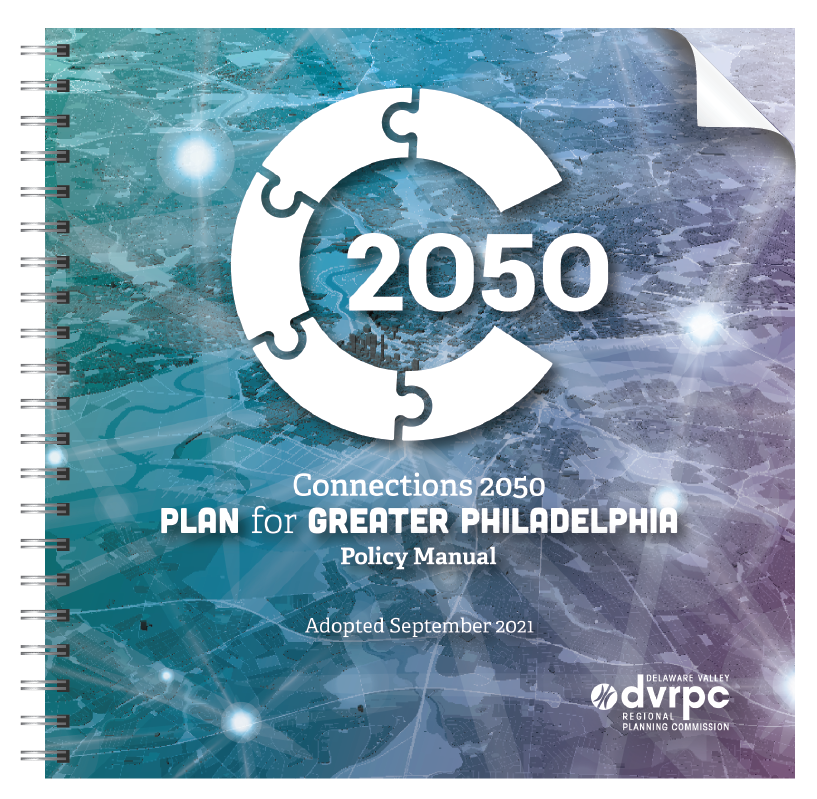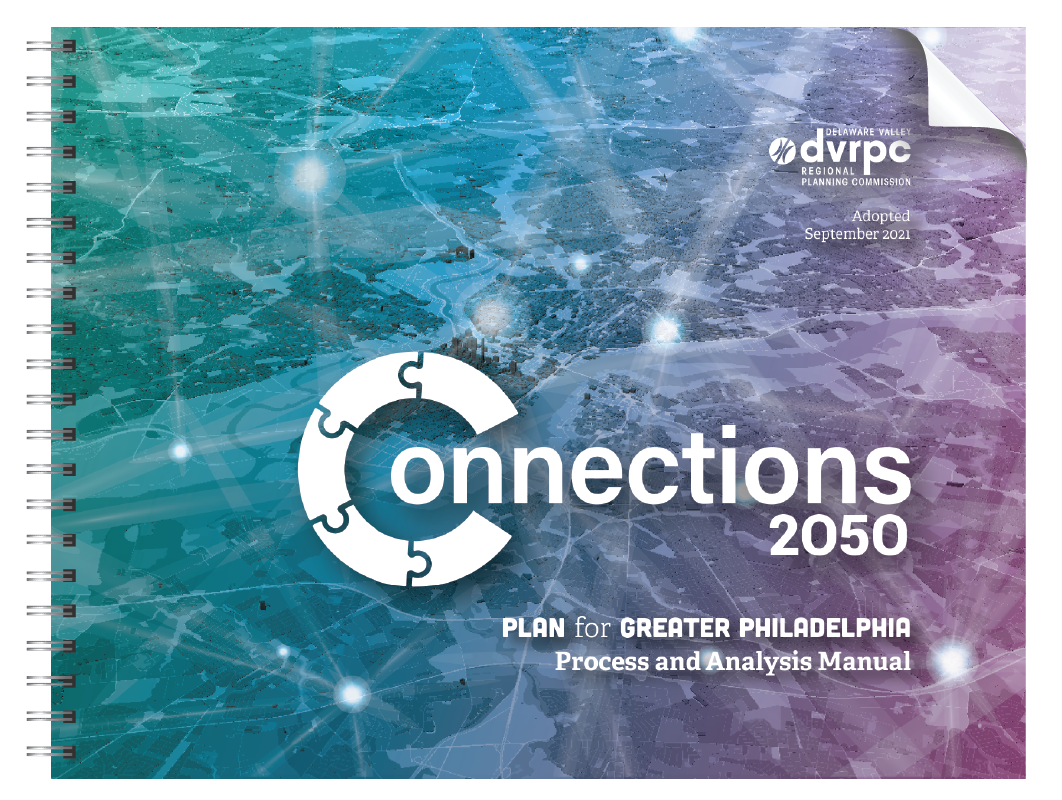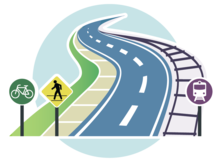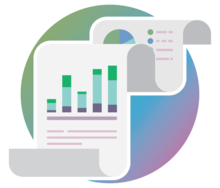Update: Connections 2050
DVRPC is opening a public comment period to seek your input on Draft Update: Connections 2050 Plan for Greater Philadelphia. DVRPC will accept comments on the draft documents from July 18, 2025, until August 20, 2025, at 5:00 PM local time. Click below for more information.

See what else we’ve been up to:
- New Data: 2020 and 2023 Land Use Geospatial Data
- Adopted 2050 v2.0 Population & Employment Forecasts
Connections 2050
Connections 2050 Is greater Philadelphia's current long-range plan and was adopted by the DVRPC Board on September 23, 2021. It’s in effect until the next Plan is adopted.
The Plan includes strategies to achieve the vision and a fiscally-constrained financial plan for investing in regional transportation infrastructure. Use the icons or links below to access the Plan and related products.




